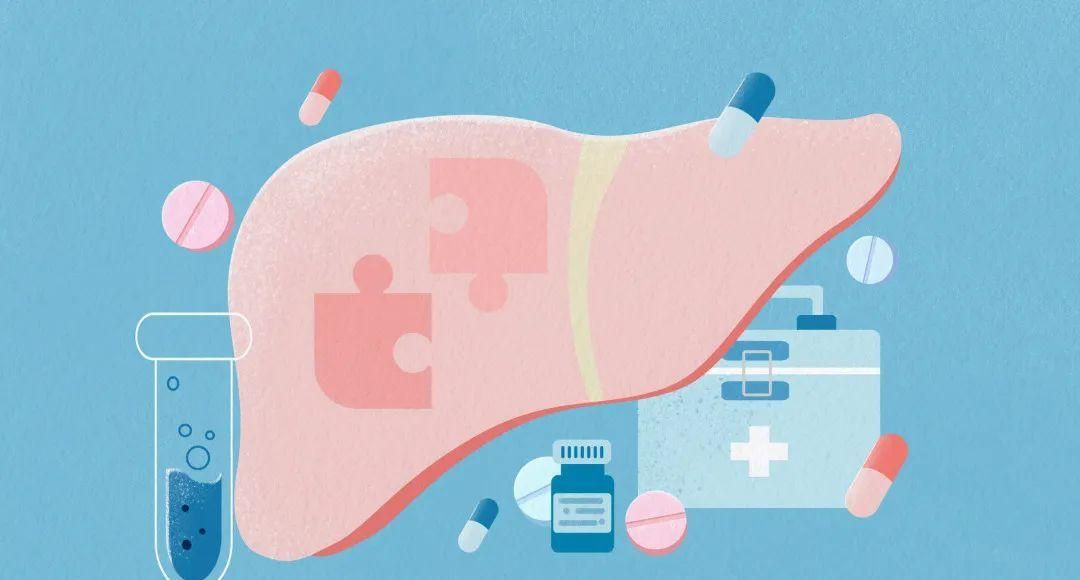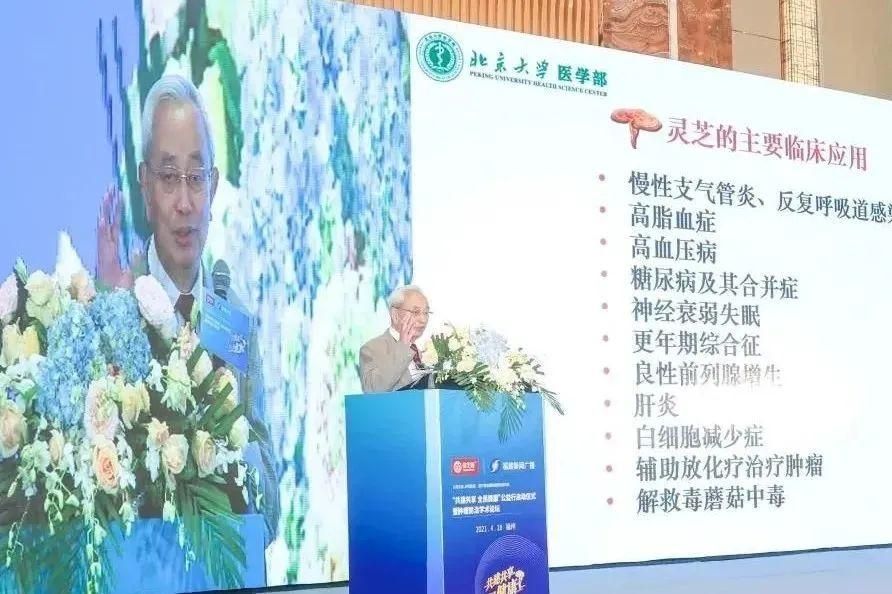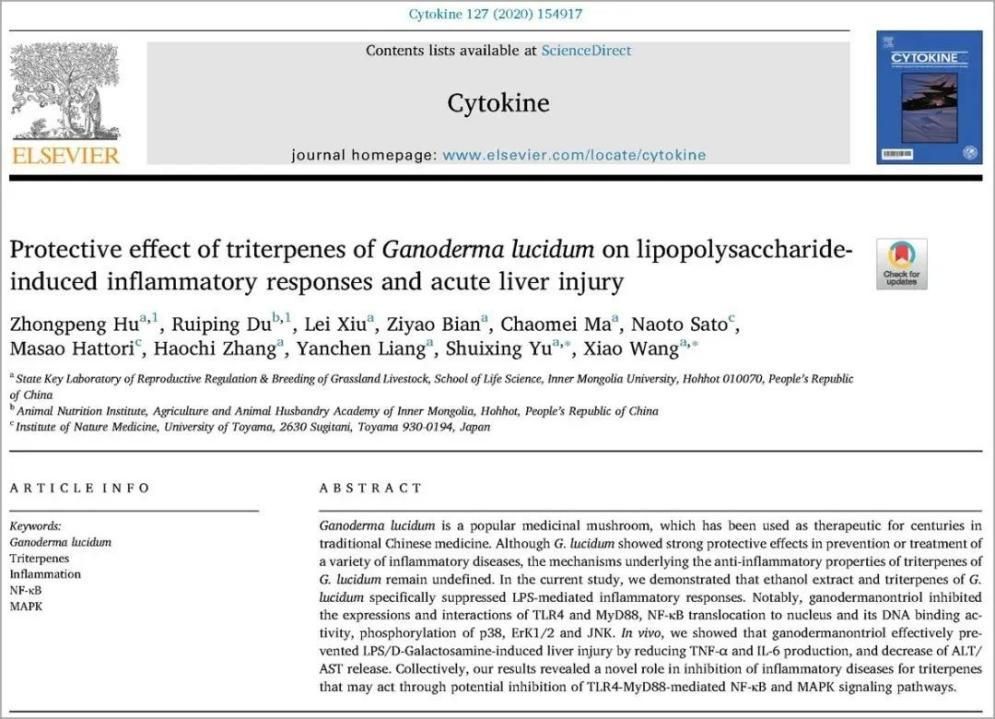July 28th is the 13th World Hepatitis Day. This year, the theme of China’s campaign is to “Persist in Early Prevention, Strengthen Detection and Discovery, and Standardize Antiviral Treatment”.
The liver has metabolic, detoxifying, hematopoietic and immune functions, and has a significant impact on overall health. However, viral hepatitis infections often have no noticeable symptoms until the disease has progressed to an advanced stage.
According to estimates by the World Health Organization (WHO), only 10% of those infected are aware of their infection, and only 22% of those infected receive treatment. Among those infected with the hepatitis C virus, the proportion who are unaware and untreated is even higher. Therefore, protecting liver health is crucial for human health.
Professor Lin Zhibin of Peking University Health Science Center: Reishi mushroom has a significant liver-protecting effect.
Professor Lin Zhibin has mentioned the efficacy of Reishi mushroom on hepatitis in his articles and works many times:
● Since the 1970s, numerous clinical reports have shown that Reishi mushroom preparations have an overall effectiveness rate of 73% to 97% in treating hepatitis, with a clinical cure rate ranging from 44% to 76.5%.
Reishi mushroom has been shown to be effective in treating acute hepatitis on its own, and can also enhance the effectiveness of antiviral drugs in the treatment of chronic hepatitis.
In 10 published reports on viral hepatitis research, a total of over 500 cases were reported in which Reishi was used alone or in combination with antiviral drugs for the treatment of viral hepatitis. Its therapeutic effect is manifested as follows:
(1) Subjective symptoms such as fatigue, loss of appetite, abdominal distension, and pain in the liver area are reduced or disappear;
(2) Serum ALT levels return to normal or decreases;
(3) Enlarged liver and spleen return to normal or shrink to varying degrees.
—Excerpted from pp. 95-102 of Lingzhi From Mystery To Science by Lin Zhibin
Professor Lin Zhibin has pointed out in his speeches that Reishi has a good liver-protecting effect in clinical practice.
The liver-protecting effect of Reishi is also related to the descriptions in ancient Chinese medical texts of Reishi’s ability to supplement liver qi and boost spleen qi.
Research has confirmed that Reishi can effectively improve the condition of patients with acute hepatitis.
In March 2020, a study published in Cytokine by researchers from Inner Mongolia University, Inner Mongolia Academy of Agricultural and Animal Husbandry Sciences, and Toyama University found that Ganoderma lucidum ethanol extract, as well as its triterpene compound ganodermanontriol, can inhibit inflammation caused by lipopolysaccharide (LPS), a major component of the bacterial outer membrane, in vitro.
In a study where mice with fulminant hepatitis were injected with ganodermanontriol, an examination of their livers 6 hours later revealed that:
① The levels of the hepatitis indicators AST (aspartate aminotransferase) and ALT (alanine aminotransferase) in the blood of the mice in the Reishi group were significantly lower;
② The concentrations of TNF-α (tumor necrosis factor-alpha) and IL-6 (interleukin-6), two of the most important pro-inflammatory factors in the liver, were greatly reduced;
③ Examination of liver tissue sections from the mice showed that, under the protection of ganodermanontriol, liver cell necrosis was significantly less severe.
The research results show that Ganoderma lucidum can provide significant protection against liver injury caused by excessive inflammation.
Clinical research has confirmed that Reishi can improve the condition of chronic hepatitis.
Clinical research conducted by the Second Clinical Medical College of Guangzhou University of Traditional Chinese Medicine has demonstrated that hepatitis B patients who took Ganoderma lucidum capsules (1.62 grams of Ganoderma lucidum crude drugs per day) as an adjuvant to antiviral drug lamivudine treatment over a one-year period experienced improved liver function and enhanced antiviral efficacy in a shorter period of time.
A clinical report published by Jiangyin People’s Hospital in Jiangsu Province has confirmed that taking 6 Ganoderma lucidum capsules (containing a total of 9 grams of natural Ganoderma lucidum) daily for 1-2 months has a better therapeutic effect on hepatitis B than the commonly used traditional Chinese medicine Minor Bupleurum Decoction granules, with more significant improvements in subjective symptoms, relevant indices, and the number of viruses in the body in the Ganoderma lucidum group.
Why is Ganoderma lucidum effective for hepatitis?
In his book “Lingzhi From Mystery to Science”, Professor Lin Zhibin mentioned that triterpenoids extracted from the Ganoderma lucidum fruiting body are important components for liver protection. They protect against chemical liver injury caused by CCl4 and D-galactosamine as well as immune liver injury caused by Bacillus Calmette-Guérin (BCG) and lipopolysaccharide. In general, Ganoderma lucidum has its own way of protecting the liver.
The ultimate way to fight viruses is to maintain a strong immune system. In addition to vaccination and daily health management, incorporating Ganoderma lucidum into your diet can help keep your immunity at a high level. This can potentially reduce the severity of illness, turning severe cases into mild cases and mild cases into asymptomatic cases, ultimately leading to better health.
References:
Wu, Tingyao. (2021, July 28). The Urgency of Combating Hepatitis Viruses and COVID-19 is the Same, and Ganoderma Lucidum Can Play a Role in Both.
Wu, Tingyao. (2020, November 24). Three New Studies on the Protective Effects of Ganoderma Lucidum on the Liver: Reducing Fulminant Hepatitis and Liver Injury Induced by Formaldehyde and Carbon Tetrachloride.
Post time: Jul-28-2023


